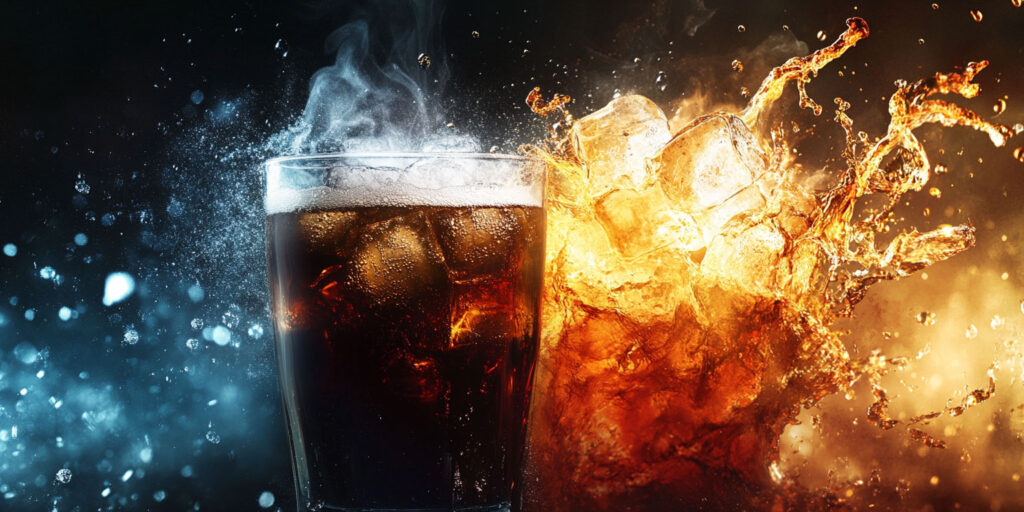Coffee lovers, we need to settle this once and for all—what’s the real difference between cold brew and iced coffee? While both serve up a refreshing caffeine kick, they are worlds apart in how they’re made, their flavors, and even their caffeine content. If you’ve ever wondered which one is right for you, this guide will break it all down.
How They’re Made: Brewing Basics
The key difference between cold brew and iced coffee starts with how they’re prepared.
| Cold Brew: Made by steeping coarsely ground coffee beans in cold water for 12 to 24 hours. Requires no heat during the brewing process. The concentrated coffee is then diluted with water or milk before serving. | Iced Coffee: Starts as regular hot coffee that’s brewed as usual. It’s then cooled down and poured over ice. Sometimes, it’s double-brewed (stronger than usual) to prevent dilution when ice melts. |
Flavor Profiles: Smooth vs. Bold
One of the biggest differences between cold brew and iced coffee is taste.
- Cold Brew has a naturally smoother, less acidic taste. The slow extraction process reduces bitterness, resulting in a slightly sweeter, velvety flavor.
- Iced Coffee retains the brightness and acidity of traditional hot coffee. Because it’s brewed quickly with heat, the flavors are sharper and more pronounced—perfect for those who love a bold taste.
Want a milder, low-acid coffee experience? Cold brew is your best bet. Craving something that still has the classic coffee bite? Iced coffee is the way to go.
Caffeine Content: Which One Packs More Punch?
If you’re looking for a caffeine boost, cold brew tends to be stronger. Since it’s brewed as a concentrate, it usually contains more caffeine per ounce than regular iced coffee. However, many people dilute their cold brew, which brings the caffeine level closer to that of iced coffee.
General Caffeine Comparison:
- Cold Brew: Higher caffeine concentration, but dilution affects the final amount.
- Iced Coffee: Regular caffeine levels similar to hot coffee.
If you want a gentle yet sustained energy boost, cold brew’s slow extraction may work better. But if you need a quick wake-up call, iced coffee gets the job done fast.

Price & Convenience: Which One Wins?
When it comes to cost and convenience, iced coffee often takes the lead.
- Iced Coffee: Faster to make, readily available, and generally cheaper at coffee shops.
- Cold Brew: Takes more time to prepare and is often pricier due to the lengthy brewing process.
If you’re making coffee at home and want something quick and easy, iced coffee is a great choice. But if you’re willing to plan ahead, cold brew is worth the wait.
Which One Should You Choose?
At the end of the day, it all depends on your taste, caffeine needs, and lifestyle.
| ✔ Choose Cold Brew If: You prefer a smoother, less acidic flavor. You like stronger caffeine (but want the option to dilute it). You don’t mind waiting 12+ hours to brew it. | ✔ Choose Iced Coffee If: You love bold, bright, and slightly acidic flavors. You need a quick caffeine fix and don’t have time for long brewing. You want a cheaper and more accessible option. |

The Final Sip
Both cold brew and iced coffee have their own unique perks, and neither is necessarily “better” than the other—it’s all about personal preference. Whether you’re a fan of the rich smoothness of cold brew or the classic boldness of iced coffee, both drinks offer a refreshing way to enjoy your daily caffeine fix.

